
"Calypso: Beyond Boundaries and Borders"
Every year during the month of October, special focus is placed on the key role that this art form has played in the social, educational, economic and certainly political development of Trinidad and Tobago.
This year Trinbago Unified Calypsonians Organisation (TUCO) is celebrating its eighteenth (18th) year of Calypso History Month.
This year’s theme ‘Calypso, Beyond Boundaries and Borders’, pays homage to calypso’s influence on cultures around the world and their deep seeded connection to Trinidad and Tobago. Our country is a historical and cultural melting pot and every race, creed and class has been either influenced by or contributed to the development of the art form.
As we celebrate Calypso History Month, let us take the time even in the face of the challenges that confront us to pay tribute to an art form that has taken us through Emancipation to Independence and beyond.
Brief history of Calypso
The Calypso in Trinidad and Tobago is mainly of African origin and can be traced to the traditions of West Africans in terms of music, structure and function. Calypso, which has been called a poor man’s newspaper in times when literacy was not widespread, traces its roots to African traditions of improvised songs of self-praise and scorn for others, brought here by enslaved peoples.
The roots of the word “Calypso” are diverse. Some argue it came from “kaiso” a Hausa word for “ bravo” ; some say the word came from the French “carrousseaux” a drinking party; or the Spanish “ calliso” a tropical song ; or the Carib “ carieto”, meaning the same thing.
The first wave of professional calypsonians became known as the Old Brigade, including singers such as Growling Tiger, Lord Beginner, Atilla the Hun, the Roaring Lion and Lord Pretender. By 1945 a new wave of singers rose to meet the demand for more entertaining songs. This Young Brigade included Lord Kitchener, Mighty Spoiler, Mighty Dictator and Lord Wonder, and later the Mighty Sparrow.
The Black Power marches in 1970 once again triggered a new generation of singers such as Black Stalin and Brother Valentino. A broad range of voices and musical experimentation was ushered in by Shadow, Maestro, Merchant and Explainer. 1978 saw the Calypso Monarch competition being won by a woman for the first time. Calypso Rose signaled the entry of many more women on the Calypso stage.
Calypso today is seeing the emergence of a new group of artistes like Karene Asche, Brian London, Devon Seale, Helon Francis and Terri Lyons to name a few. These young, talented singers are eager to keep the artform alive. For several years young calypsonians have dominated positions in the Calypso Monarch competition signalling the rise of a new guard. Over the years the calypso art form has been transformed and presented in various categories the major ones being; Nation Building, Political Commentary, Social Commentary, Humorous, Soca, Ragga Soca, Chutney Soca and Parang Soca.
Song of the Day: October 04, 2021
Calypso rising: Composed by Gregory (GB) Ballantyne, sung by Mavis John
Listen to the song of the day by clicking the following link: https://www.youtube.com/watch?v=1LEVSyFptIw
Gregory “GB” Ballantyne
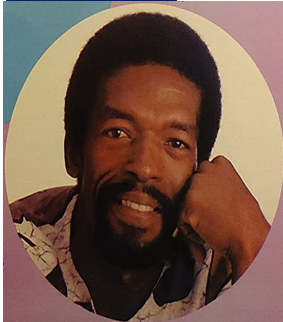
Gregory Ballantyne is a prolific singer-songwriter, composer, musician and professional media host from Trinidad and Tobago. He graduated from the University of the West Indies (UWI), Mona Campus in Jamaica with a Post Graduate in Mass Communications.
Throughout his career, Gregory has penned hundreds of songs for himself and other artistes. It was back in the late 90’s when Gregory penned the song, “Calypso Rising.”
The song was immediately ‘picked up’ by David Rudder who gave it a stirring soulful reading in contrast to Gregory’s funky-calypso original rendition. “Calypso Rising” written in 1997, has become his most ‘covered’ and cherished song.
At the same time, he also wrote, “The Future Belongs to Me” for David Rudder. The song advised and admonished the youths on the use of drugs. Many of Gregory’s songs have been performed by some of the top calypsonians in Trinidad and Tobago.
Of particular note in recent years, compositions by Gregory have won five (5) of the last ten (10) Antiguan National Calypso Monarchs, the OECS Caribbean Queen Title, as well as Grenada and USVI Monarchs. In 2019, he was part of the Inter-American Institute for Cooperation on Agriculture (IICA) promotional video called, "IICA Covid-19". The video was defined as a “Popular music tribute to those who work, day to day to put food on our tables.”
Mavis John
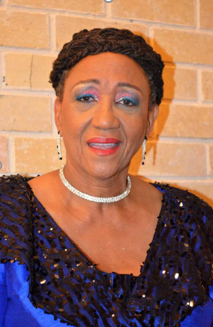
Hailed as one of Trinidad & Tobago’s most talented songstresses, Mavis John is a musical talent of note, though not typically associated with the Calypso genre. Her cover of GB’s Calypso Rising is one of her more popular Calypso covers. She is also known for her rendition of God Bless Our Nation.
A singer, songwriter, John produced her first record, It’s a Man’s World, in 1965, becoming a teen idol throughout the 1960s and 70s.
Originally born in Clifton Hill, she relocated to Belmont and made a home here for many years. Mavis John would have a resurgence in the local music scene in the 1990s and 2000’s. While many of her contemporaries were seen to have often stayed within the Calypso and Soca genres, John lent her signature voice to works in the Blues, Jazz and Soul genres.
Mavis John was an active thespian and singer, even starring in the play Shades of I-She, for which she won a 1996 Cacique Award.
Her 2001 album, Mavis Sings, was met with wide critical acclaim, and as mentioned above, sparked a renewed public interest in her musical endeavours. Mavis has been consistently performing, locally, regionally and internationally. In June 2003 she appeared at the St. Kitts Music Festival sharing the stage with acclaimed international artists such as Ashanti, Shaggy, Jeffrey Osbourne and The Temptations.
Bibliography
Calypso History Month Calypso: Beyond Boundaries and Borders. (2021).
Government of Trinidad and Tobago. Remember When Institute. (2021).
Gregory Ballantyne - (Calypso Rising) - Anthony’s Cari-Jazz Artiste of the Day (2021)
Gregory Ballantyne. [Facebook Page]. Facebook. (retrieved October 2, 2021 from Gregory.ballantyne.581
Gregory Ballantyne. (retrieved 2021).
Mavis John. (August 23, 2018).
Song of the Day: October 05, 2021
Calypso music: David Rudder
Listen to the song of the day by clicking this link: https://www.youtube.com/watch?v=RFh9rFRxTp4
David Rudder
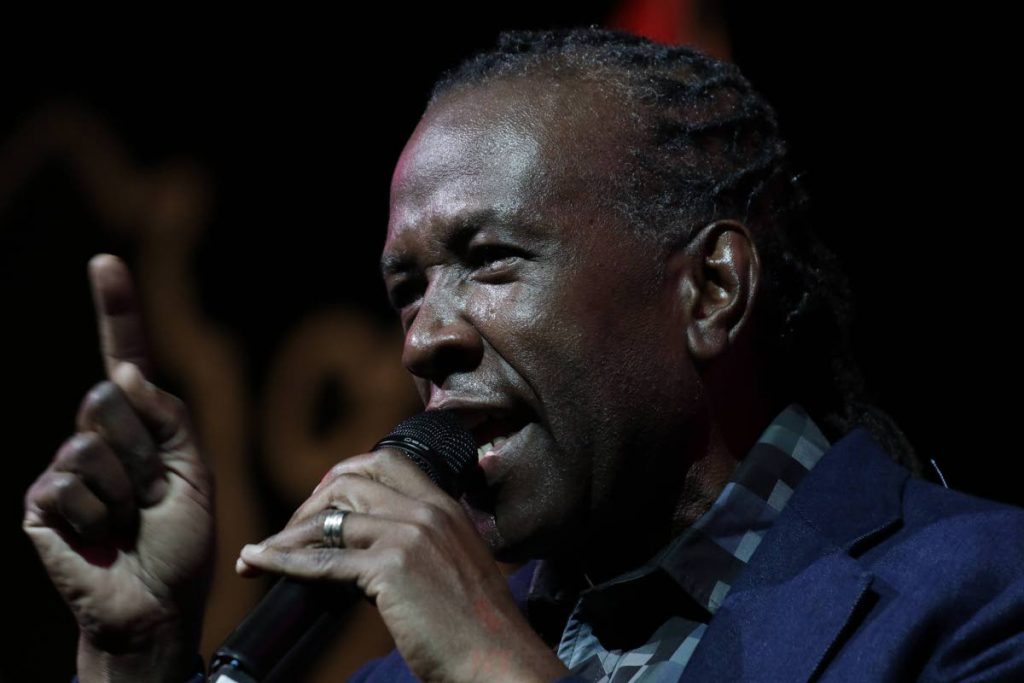
In 1986 David Michael Rudder became a global calypso superstar.
In his debut year as a solo act, the then 32-year-old Rudder created history by becoming the first and only performer to win every Carnival calypso title possible including: the Young King, National Calypso Monarch, Road March) and Panorama competition -- Trinidad All Stars steel orchestra won the National Panorama competition with Rudder’s “The Hammer”.
David Michael Rudder, born 6 May,1953, is known to be one of the most successful calypsonians of all time. He performed as lead singer for the brass band Charlie's Roots. Nine years later, Rudder stepped outside the band, entering the calypso tent as a solo calypsonian in 1986, which was followed by an unprecedented rise to fame.
His music quickly became the subject of music critics around the world: "From New York to London to Tokyo, where the Japanese have released a CD of Rudder's greatest hits complete with lyrics translated into Japanese, Rudder has been described as modern calypso's most innovative songwriter."
Born in Belmont, Port of Spain, Trinidad and Tobago, one of nine children, Rudder spent much of his early life with his grandmother, a devout Baptist. He began singing with a calypso band at a young age, and in his teens sang backup vocals in a calypso tent run by Lord Kitchener, while earning his living as an accountant with the Trinidad Bus Company. In 1977, he joined Charlie’s Roots, a leading band in Trinidad and Tobago, which launched with help and sponsorship from New York-based record producer Rawlson Charles, and Rudder spent many years as one of the band's vocalists.
In 1986, he came to prominence on Andy Narell's album The Hammer, which produced two big hits: "The Hammer" (a tribute to the late pannist Rudolph Charles) and "Bahia Girl". This was followed in 1987 with "Calypso Music", a brilliant encapsulation of the history of calypso. In 1988 Rudder released what is widely considered his best album to date, Haiti, which included the title track, a tribute to the glory and suffering of Haiti; "Engine Room", which captured the energy of the steel band; and "Rally 'Round the West Indies”, which became the anthem of West Indies cricket. In 1991, four tracks performed by Rudder were included in the soundtrack of the film Wild Orchid: "Dark Secret" (two versions), "Children Of Fire (Call Of Xango)", and "Just a Carnival", which includes Rudder in the final scene in the movie "performing" on the beach.
Over the years Rudder collaborated with many musical greats to build his legendary career. He worked with iconic music producers Pelham Goddard and later Wayne Bruno, as well as, sound engineer Robin Foster. Rudder has also collaborated with several hit-making soca acts including Bajan soca queen Alison Hinds on “Glow” (2001) and soca king Machel Montano on “Oil and Music” (2008), Kes the Band lead singer Kees Dieffenthaller on “Live Yuh Life (Like Yuh Playing Mas)” (2012).
Bibliography
https://en.wikipedia.org/wiki/David_Rudder
https://trinidadexpress.com/features/local/the-shooting-star-of-david/article_cb01685e-b5d8-11eb-900a-3b44bb1d2c6b.html
Song of the Day: October 06, 2021
Pan in A Minor: Lord Kitchener
Follow this link to listen to the song of the day! https://www.youtube.com/watch?v=MVCUdjI0CLk
Lord Kitchener ("Kitch") - The Grandmaster
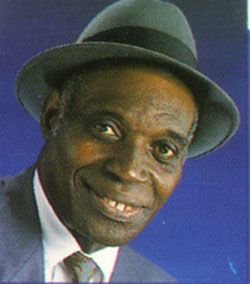
Aldwyn Roberts (18 April 1922 – 11 February 2000), better known by the stage name Lord Kitchener (or "Kitch"), was a Trinbagonian calypsonian. He has been described as "the grand master of calypso" and "the greatest calypsonian of the post-war age".
Roberts was born in Arima, Trinidad and Tobago, the son of a blacksmith, Stephen, and housewife, Albertha. He was educated at the Arima Boys Government School until he was 14, when his father died, leaving him orphaned. His father had encouraged him to sing and taught him to play the guitar, and he became a full-time musician, his first job playing guitar for Water Scheme labourers while they laid pipes in the San Fernando Valley. He became locally popular in Arima with songs such as "Shops Close Too Early", and joined the Sheriff Band as lead singer. He won the Arima borough council's calypso competition five times between 1938 and 1942.
He moved to Port of Spain in 1943 where he joined the Roving Brigade. He was spotted singing "Mary I am Tired and Disgusted" (aka "Green Fig") with the group by Johnny Khan, who invited him to perform in his Victory Tent, where he met fellow calypsonian Growling Tiger, who decided Roberts should from that point be known as Lord Kitchener. He became known as an innovator, introducing musical and lyrical changes, including frequent criticism of the British government's control of the island. During World War II Kitchener became popular with US troops based on the island, leading to performances in New York. After the end of World War II, the Trinidad and Tobago Carnival took place in early March 1946, during which Kitchener won his very first official Road March title with a catchy calypso leggo called "Jump In The Line".
He toured Jamaica for six months in 1947–48 with Lord Beginner (Egbert Moore) and Lord Woodbine (Harold Phillips) before they took passage on the Empire Windrush to England in 1948. Upon his arrival at Tilbury Docks, Kitchener performed the specially-written song "London Is the Place for Me", which he sang live on a report for Pathé News.
Within two years he was a regular performer on BBC radio, and was much in demand for live performances. He found further success in the UK in the 1950s, building a large following in the expatriate communities of the West Indian islands, and having hits with "Kitch", "Food from the West Indies", "Tie Tongue Mopsy", and "Alec Bedser Calypso", while remaining popular in Trinidad and Tobago.
In 1962, he returned to Trinidad, where he and the Mighty Sparrow proceeded to dominate the calypso competitions of the 1960s and 1970s. Lord Kitchener won the road march competition 10 times between 1963 and 1976, more often than any other calypsonian. For 30 years, he ran his own calypso tent, Calypso Revue, within which he nurtured the talent of many calypsonians. Calypso Rose, David Rudder, Black Stalin and Denyse Plummer are among the many artists who got their start under Kitchener's tutelage. Later he moved towards soca, and continued recording until his death. Kitchener's compositions were enormously popular as the chosen selections for steel bands to perform at the annual National Panorama competition during Trinidad Carnival. He won his only Calypso King title in 1975 with "Tribute to Spree Simon". He stopped competing in 1976.
In 1993 a campaign was launched for Kitchener to receive the island's highest civilian honour, the Trinity Cross. The government declined but offered him a lesser honour, which he turned down.
Having been diagnosed with bone marrow cancer, Kitchener retired in 1999 after delivering a final album, Vintage Kitch. He died on 11 February 2000 of a blood infection and kidney failure at the Mount Hope Hospital in Port of Spain. He is buried in the Santa Rosa Cemetery in Arima.
Kitchener is honoured with a statue in Port of Spain. A bust is also on display on Hollis Avenue, Arima, not far from the Arima Stadium.
Bibiography
https://en.wikipedia.org/wiki/Lord_Kitchener_(calypsonian)
Song of the Day: October 07, 2021
Give More Tempo: Calypso Rose
Follow the link to listen to the song of the day -https://www.youtube.com/watch?v=wIBTAdQThNQ
Calypso Rose
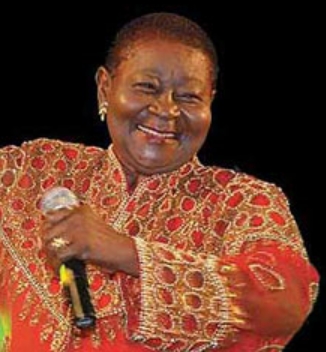
Born McCartha Linda Sandy-Lewis on 27 April 1940 in Bethel, Tobago, Calypso Rose began writing songs at the age of 15, turned professional in 1964 and has written over 800 songs and recorded over 20 albums.
Named after the American general Douglas MacArthur, Rose’s earliest years were in a crowded environment - 19 people in a one-bedroom house. When she was 9, she moved from Tobago to live with an uncle in Barataria. Rose’s father was a leader with the Spiritual Shouter Baptists. Her family was very traditional and opposed to her singing in Carnival Tents.
In 1955 Rose wrote her first Calypso “Glass Thief” after seeing a man stealing the glasses from a woman in a market . It is the first Calypso denouncing inequality between the sexes. Travelling outside of Trinidad and Tobago for the first time in 1963, Rose covered the islands from Grenada to St. Thomas. She won the Calypso King contest and the Road march in St. Thomas with her first recording, Cooperation. This is the first time in history that a woman wins the title. In 1966 she wrote the song Fire in Me Wire, the first calypso ever sung two years running at the Trinidad carnival, in 1966 and 1967. In the mid-70s, as well as dominating the race for the Calypso Queen Title, a title she won five years running from 1972 to 1976, Rose had major hits with Constable Rose and Do Dem Back which became her first gold disc.
Calypso Rose was the first female to win the Trinidad Road March competition, in 1977 with her song Gimme More Tempo and in 1978 she took the title again with Come Leh We Jam. In the same year she won the Calypso King competition, the first time it had ever been awarded to a female. The competition's title was changed to Calypso Monarch in her honour.
With Rose's success she was able to work alongside many artists. In 1967, Rose and Bob Marley performed together in the Grand Ballroom in New York City and later they got to perform together once again in Miami. Her album "Far From Home" led her to collaborate with French/Spanish singer Manu Chao who sang three songs from her album. One of her recent collaborations was with Machel Montano in a song called "Young Boy". Another one would be with Kobo Town in a song called "Scarborough Girl" in 2018.
In October 2019, she released a song titled "Baila Mami" from the new Calypso Rose & Friends EP featuring Nailah Blackman, Lao Ra, Manu Chao, Machel Montano, Patrice, Tim Armstrong & The Interrupters and King Doudou. The song is a mix of Spanish and English encouraging women to break free and dance.
In an interview, Rose said that her two proudest moments of her life was when she was named Calypso Monarch and when she won the French Grammy award, Victoire de la Musique, in Paris in 2017 because of her album "Far From Home".
Alongside her career in music Calypso Rose was a part of many documentaries including "Calypso at Dirty Jim's", and "Calypso Rose, Lioness in the Jungle". In 2019, Rose performed at Coachella, marking the first time a calypso performer played a full set at the festival. At 78, she became the festival's oldest performer to date. Calypso Rose is still actively writing new music, even telling a reporter that she carries around a tape recorder with her to keep track of her ideas.
Receiving more awards from around the world than any other living Calypsonian, in Trinidad and Tobago, Calypso Rose has been the recipient of The Public Service Medal of Merit Silver in 1975, the Humming Bird Medal (Gold) in 2000 and The Order of the Republic of Trinidad and Tobago in 2017, the nation’s highest honour.
Bibliography
http://caribbeanelections.com/knowledge/biography/bios/calypso_rose.asp
https://en.wikipedia.org/wiki/Calypso_Rose
http://www.calypso-rose.com/
Song of The Day - October 08, 2021
Voices from the ghetto: Singing Sandra
Listen to the song of the day by clicking this line: https://www.youtube.com/watch?v=A-ZH27vGntg
Singing Sandra

Sandra Des Vignes was born in 1957 in East Dry River and raised in Morvant. She was born in a poor family and faced many hardships through her early teenage years. Singing Sandra was the only child of the family and her singing talent was evident from an early stage, given that her grandmother was the best singer in her village. She was baptized in Spiritual Baptist church when she was fifteen years old and during her later stage of her life she became a practicing Orisha.
In her mid-20s she was approached in 1984 by calypsonian Dr. Zhivago to perform two of his songs, and the following year was recruited to Mighty Sparrow's Youth Brigade tent at the carnival. Her exceptional talent and persistence in hard work and in music resulted in her winning the National Calypso Queen in 1987. From that moment onward her career accelerated at an exponential rate.
Sandra went on to win the Carifesta Monarch and Calypso Queen of the World titles in 1992 and she performed at the Reggae Sunsplash festival. Later, she formed the group United Sisters along with Lady B, Tigress, and Marvellous Marva. As a result of her career as an artist, she was a well-respected musician of calypso. Her achievements were numerous. She was the second woman to win Trinidad's Calypso Monarch title, winning in 1999 with the songs "Song for Healing" and "Voices from the Ghetto". She was able to finish in third place in 2000 and in fifth place during 2001's festival. In 2003 she won the Calypso Monarch title for a second time, with "For Whom the Bell Tolls" and "Ancient Rhythm" becoming the first female Calypsonian to win the title twice.
Singing Sandra was an A-star cast member of Kaiso House calypso tent. As one of the pioneers in the Calypso industry, Singing Sandra's trajectory has empowered many listeners, especially women as evident in her composition “Die with my dignity”. She influenced people in a positive way by giving them something to think about.
Bibliography
https://en.wikipedia.org/wiki/Singing_Sandra
Song of the Day: October 11, 2021
Education: Mighty Sparrow
Click the following link to listen to the song of the day. https://www.youtube.com/watch?v=jfddFD1SIV8
The Mighty Sparrow

“Celebrant, chantwell, warrior, prophet, satirist and purveyor of joy, delight and elation: raconteur of the folk tales of our daily grass-rooted life.”
The OCC Awardee to whom such adulations belong is the Caribbean’s most celebrated and renowned entertainer, social commentator and ambassador extraordinaire, Dr. Slinger Francisco, whom the world knows as “The Mighty Sparrow”. Known as the "Calypso King of the World", he is one of the best-known and most successful calypsonians. He has won Trinidad's Carnival Road March competition eight times, Calypso King/Monarch eight times, and has twice won the Calypso King of Kings title.
His cross-national Caribbean identity is born out of Grenada, his birthplace, and Trinidad and Tobago, his homeland since the early age of two. His songs speak to the multifaceted dimensions of the Caribbean experience, its political culture, its history, its people’s way of life and struggles, satirising and even admonishing in its social commentary. His music has achieved worldwide recognition, touching on issues of international significance.
Sparrow’s colossal collection of recordings has earned him numerous awards and commendations from various Caribbean Governments, including the Chaconia Medal (Gold) for long and meritorious service, Trinidad and Tobago’s second highest honour as well as the Hummingbird Medal (Silver). He has also earned awards from several North American cities where he performed and was conferred the Honorary Doctor of Letters degree by the University of the West Indies.
This legendary and iconic Caribbean artiste soothes the Caribbean’s soul through his music and forged a Caribbean cultural identity worldwide through the excellence and insight of his performances. The career achievements of this loved son of the Caribbean soil are captured succinctly in this extract from the citation presented at the conferral of his OCC award. “Sparrow has been rebel, warrior, the aggressive life force beneath the very foundations of Caribbean society, pushing down walls, transgressing boundaries of race, colour, class and caste, defining freedom”.
The Mighty Sparrow is now an Officer of the Order of the British Empire (OBE). Sparrow was chosen for the OBE award, in recognition of his contributions to culture. His name was announced in the Queen’s birthday honours list, which also names new Knights and Dames for their noteworthy service. His name will now read: Slinger Francisco OBE.
Bibliography
Dr. Slinger Francisco (The Mighty Sparrow). (2021). Caribbean Community Secretariat.
Legendary Calypsonian Mighty Sparrow Knighted an Obe. (2015, June). Caribdirect.
https://en.wikipedia.org/wiki/Mighty_Sparrow
Song of the Day: October 12, 2021
Fiery: Maestro
Follow the link to listen to the song of the day. https://www.youtube.com/watch?v=2mcaDBFz6uM
Maestro
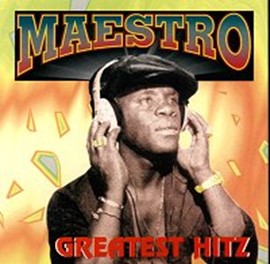
Maestro, born Cecil Hume was born in Princes Town, Trinidad. He began singing in the 1960s and his calypsoes include: Tempo; Fiery; Rampage; Gold; Savage; Play Me; Tantie; Over Yonder; Brimstone; Mountain Dew Gang; Knock Dem Down; Bionic Man.
Maestro’s 1976 album, laden with gems, is considered one of the greatest calypso albums ever. The hits included “Fiery,” “Boom Bam,” “Mountain Dew Gang,” “Champion of the Road” and “Some Came Running.” Among signature selections he unleashed earlier were “Black Identity,” “Mr. Trinidad” and ”Tempo.”
Several of Maestro’s hits have been recycled and performed by modern-day soca artists. A version of “Fiery” was released by Bunji Garlin in 2008. For the 2013 Trinidad Carnival “Gold” made a reappearance, performed by an eclectic group including Machel Montano, Rikki Jai, Karene Asche and Dwayne O’Connor, and with lyrics modified to sing the praises of Trinidadian javelin gold medalist at the 2012 London Olympics, Keshorn Walcott and other past Trinidad and Tobago winners and champions of international renown.
Exodus, Buccooneers, Supernovas, Tamana Pioneers, Tokyo and West Stars steel orchestras all chose the revamped “Gold” as their tune of choice in the Trinidad & Tobago Panorama 2013.
One of the many calypsonians who had a hand in the Steelband Movement was Cecil Hume, known as The Maestro. In Princes Town he formed the band Freetown; for which he was the tuner and arranger. He arranged for Free French, one of the oldest bands in San Fernando, in 1960; and he was also associated with True Tones of Princes Town.
At the Steelband Music Festival in 1968 he arranged the tune Concert Hall for True Tones. They came second to Desperadoes; whose interpretation was arranged by Mr Anthony Prospect. Concert Hall was Maestro's first 45 [record]; and [on] the reverse side Great Inventions was a tribute to Ivory and Steel. Maestro himself wrote the tune Tempo in 1975; which was a tribute to the steelband movement in which he commented on the lack of tenor... [arrangements] in their Panorama [performances].
Steelband and calypso go hand in hand and Maestro surely solidified this in his contribution to both.
It was in August 1977 that Maestro, came to his demise in an auto accident in Trinidad. His death came on the eve of a scheduled trip to perform in New York and it was in the latter stages of a standout year in which he had scored with a number of memorable compositions including “Rampage,” ”Melee,” “Bionic Man” and “Gold,” his tribute to Trinidadian Hasely Crawford’s 100 meters victory in the 1976 Montreal Olympics.
The eeriness of his “Bionic Man” composition, in which he related having died in an auto crash and being scientifically given a rebirth, has not ceased to bedevil calypso fans over the years since his passing.
Bibliography
(2012, March). Maestro_greatest_hitz. eCaroh Caribbean Emporium.
TUCO Trinidad & Tobago (2016, October 20) Maestro, http://www.facebook.com/tuco Retrieved from https://www.facebook.com/TUCO-Trinidad-Tobago-https://www.facebook.com/129241537281739/posts/calypso-historymaestroreal-name-cecil-humeplace-of-birth-princes-town-trinidadca/543888702483685/
Song of the Day: October 12, 2021
https://www.youtube.com/watch?v=AzYPMnWwc_g
Lord Pretender
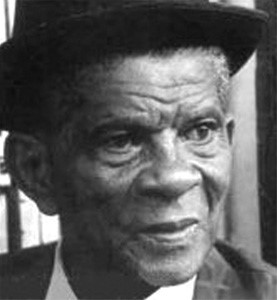
In a career spanning 72 years, Aldric Farrell, also known as Lord Pretender and Preddie, starred alongside the greats of his era like Roaring Lion, Beginner, Attila the Hun and Executor. Among his hits were ''Never Ever Worry'' and ''God Made Us All.''
Starting with an impromptu performance at the age of 12, his career spanned nearly seven decades until cancer of the larynx forced him to retire in the mid-1990s. Born in Tobago in September 8, 1917, Pretender grew up in the Corbeaux (Kobo) Town section of Port-of-Spain and made his debut in the calypso world in 1929 when he sang a calypso at a local tent called the Redhead Sailor.
Lord Pretender won his first music competition with his calypso "Ode to the Negro Race", which became a popular wartime number. The song's chorus states: "God made us all and in him we trust; so nobody in the world is better than us." In 1937 he made his first recording, for RCA Victor's Bluebird Records sub-label, and in 1939 Lord Pretender placed third in the original "Calypso King" competition, an event he later won in 1957 with "Que Sera Sera."
The honour of being crowned calypso monarch was regarded as the ultimate achievement for any calypsonian. Lord Pretender sang at the Victory Calypso Tent in the early 1940s and later moved on to the Original Old Brigade Tent where he continued singing through the 1950s. Honored by the Trinidad and Tobago government for his services to calypso in 1972, Lord Pretender went on to receive the island's Hummingbird Medal in 1994.
Lord Pretender was considered the master of the calypso genre of extempore, composing on the spot in oratorical war. Pretender's 1961 song "Never Ever Worry" is considered to be "one of the classic calypsos of all time". Fellow calypsonian David Rudder once remarked that: "Pretender talked about how there's always someone who has more worries than you. Pretender grew up in an era when calypsonians were not accepted as they are today, and it's this philosophy that got him through those hard times and made him last so long." In 1996 "Never Ever Worry" featured in the soundtrack for the U.S. road movie, Cadillac Ranch:
Don't mind how you suffering bad
What I say is true
Always consider:
Somebody suffering more than you.
Excerpt from "Never Ever Worry"—Lord Pretender (1961)
Bibliography
Emrit, R. C. Lord Pretender. Best of Trinidad.
Lord Pretender. (January 5, 2015).
TUCO Trinidad & Tobago (2016, October 21) Calypso History - Lord Pretender, http://www.facebook.com/tuco Retrieved from https://www.facebook.com/129241537281739/posts/calypso-historylord-pretenderreal-name-was-aldric-farrell-he-placed-third-in-the/544318959107326/
Song of the Day: October 14, 2021
Black Stalin: Caribbean Unity
https://www.youtube.com/watch?v=5FsRNw2E3sk
Black Stalin

Born and raised on Coffee Street in San Fernando to George and Elcina Calliste, Leroy Calliste is one of four children. He attended San Fernando Boys' R.C. School. He worked as a limbo dancer before taking up singing calypso in 1959 when he made his debut at the Good Shepherd Hall in St. Madeleine, but did not join a calypso tent until 1962 when he joined the Southern Brigade.
He was given the nickname Black Stalin by fellow calypsonian Blakie in the mid-1960s. In 1967 Black Stalin joined Kitchener's Calypso Revue tent and managed to place in that year's Calypso Monarch competition. In 1979 he moved over to the Mighty Shadow's King of the Wizards Tent and recorded his first album ”To the Caribbean Man”. That year he walked away with his first Calypso Monarch crown for his two compositions, "Caribbean Unity" and "Play One".
In 1985 he won the crown again with "Ism Schism" and "Wait Dorothy", and again in 1987 with a tribute to steelband entitled "Mr. Panmaker" and "Bun 'Dem", a song calling for St. Peter to cast the likes of Christopher Columbus, Cecil Rhodes, Margaret Thatcher and Ronald Reagan into Hell. In 1987 he was also awarded the Hummingbird Medal (Silver) for his contribution to Trinidad and Tobago culture.
In 1991 the usually dread and critical Stalin took a winning turn and walked away with the Calypso Monarch crown again, with "Look on the Bright Side" and "Black man Feelin' to Party". In 1995 he went chutney, with a "Tribute to Sundar Popo", in honour of his old friend and fellow singer. In 1994 he signed with Eddy Grant's Ice Records label, releasing the Rebellion album that year and Message to Sundar in 1995.
After finishing as runner-up to Mighty Sparrow in 1985, in 1999 Black Stalin won the title of Calypso King of the World with the calypsoes "Black Man Feeling to Party" and "Wine Boy", poking fun at the politician Dhanraj Singh.
Black Stalin became Dr. Leroy Calliste on October 31, 2008. The five-time Calypso Monarch became Dr Leroy Calliste when he was conferred with an honourary doctorate—Doctor of Letters (DLitt)—from The University of the West Indies, St Augustine, for his tremendous dedication and contribution to calypso music and culture in Trinidad and Tobago.
Bibliography
Loubon, M. (2019, February 16). Stalin’s head good Calypso legend enjoys his Carnival therapy. Trinidad and Tobago Daily Express.
Song of the Day: October 15, 2021
Merchant: Pan in Danger
https://www.youtube.com/watch?v=rmEMMtpuvDE
Merchant
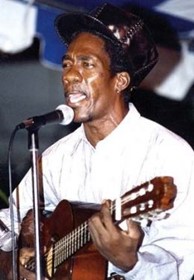
Singer/Composer Dennis Williams Franklyn, Merchant is a unique calypso star. He was orphaned at eleven and grew up in an orphanage in Belmont, Trinidad. He was one of our most brilliant, prolific calypso composers of all time, responsible for many classic calypso compositions for himself and created hits for many singers, including stars of the art-form like Bally, Baron, De Fosto, Crazy, Eddie Grant and many others. He also wrote for bands like Atlantik and the internationally acclaimed Byron Lee and the Dragonaires.
Merchant was also a fine performer and started his singing career in 1975, but his breakout hits came in 1977 with “Umbayo” and “Let No Man Judge”. In 1978, Merchant made the first of two appearances at the Calypso Monarch Finals with his hit “Norman, is that you?” and “Think About the Children”.
Merchant’s music has stood the test of time. One example is “Pan in Danger”. Apart from the intelligent and highly relevant lyrics, this is an outstanding piece of calypso music, and a great example of the quality of music available for panorama arrangers to work with in those days.
Another popular hit was the party oriented “Rock It”, another fine arrangement by the great Leston Paul. Much of the popular music of that bygone era were well crafted lyrically and musically, with outstanding accompaniment, arranged by the best arrangers of the day or indeed of any era.
Merchant died in 1999. His compositions have withstood the test of time, and his impact on the calypso art-form should not be underestimated, nor forgotten.
Bibliography
The Merchant. (2021)
Joseph, G. R. (2020, July 9). Singer/Composer Dennis Williams, – Merchant- a unique calypso star.
Song of the Day: October 18, 2021
Ras Shorty I: Indrani
https://www.youtube.com/watch?v=FHxmPi3Z03Y
Ras Shorty I
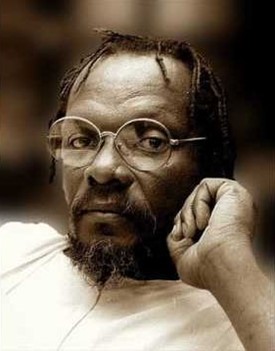
One of the few musicians of modern times who could claim to have almost single-handedly created a long-lasting musical genre, Ras Shorty I, formerly known as Lord Shorty, was one of the most creative figures to emerge from the Caribbean island of Trinidad. With hits such as "Indrani" and his 1974 album Endless Vibrations, Shorty created a new variant of Trinidadian calypso music; known as soca.
Shorty was born Garfield Blackman in the southern Trinidadian community of Lengua on October 6, 1941. The area in which he grew up was heavily populated by the descendants of indentured servants Trinidad's British colonizers had brought from India, and he heard their music along with the lilting but satirical local calypso sounds that gained international popularity after they were adopted by American performers like the Andrews Sisters and Harry Belafonte.
Beginning his life as a performer at age seven, Blackman took the name Lord Shorty early in his career. Most calypsonians took nicknames and Blackman's served humorously to point up the imposing presence of his six-foot-four-inch frame. Gaining musical experience as a teenager by working out musical arrangements for Trinidad's spectacular steel pan bands, Shorty began to record in the early 1960s. After several modestly successful releases like "Long Mango" (1962), he had a hit with "Cloak and Dagger" in 1963.
Fired from a carpentry job in 1967, he decided to make music a full-time career. The way to fame and fortune in Trinidadian music was in the island's annual calypso competitions, and in 1970 Shorty took top honors at a regional contest, losing only in the national finals in the capital of Port of Spain. In these early years he was influenced by the classic calypsonian Lord Kitchener.
In the early 1970s, Shorty worked with calypso musicians from the island of Dominica, wrote and produced songs for other artists, recorded a song in Creole French, and cast about for a way to counter the growing popularity of Jamaica's reggae music throughout the Caribbean region. "I felt calypso needed something brand new to hit everybody like a thunderbolt," Shorty was quoted as saying in The Times of London.
Shorty began to draw on the music of Trinidad's Indian minority, using such Indian instruments as the dholak, tabla, and dhantal in such songs as "Indrani." Shorty released the song "Soul Calypso Music" in 1973.
That song was widely assumed to have given the new genre of soca its name by contributing the first two letters of each of the two genres it mentioned, but Shorty himself explained the term's etymology differently, pointing to the Indian elements of the style. In his version, the syllable "so" came from "calypso" and "ca" from the Indian percussion rhythms he introduced to the music. The word was variously spelled as "solka" or "sokah" on early releases.
It was Shorty's 1974 album “Endless Vibrations” that put soca on the international music map. Other calypso singers, including the biggest star of them all, the Mighty Sparrow, jumped on the soca bandwagon, and Shorty continued to deliver innovative recordings like "Om Shanti," a song based on a Hindu chant that was even covered in India itself and became a hit there.
By the late 1970s, Shorty converted to the Rastafarian faith, traded in his fancy clothes for togas and sandals, grew dreadlocks, and moved with his wife and children to the forested Trinidadian region of Piparo. In 1980 he was christened Ras Shorty I. He formed a band called the Home Circle (later the Love Circle) which featured 13 of his children, and he proclaimed the birth of another new style. This new music he called jamoo, an abbreviation of the words "jah music."
Ras Shorty's new style, as heard on his 1984 release “Jamoo: The Gospel of Soca”, featured elements of reggae music and of African-American gospel. He continued to come up with new ideas, once again incorporating Indian instruments into his music and influencing a younger group of musicians that forged the so-called "chutney soca" style at the century's end.
Many of his songs addressed social issues, and his 1997 hit "Watch Out My Children" was a major antidrug anthem that gained international airplay and was said to have been translated into ten languages. The song warned against "a fella called Lucifer with a bag of white powder; he don't want to powder your face but bring shame and disgrace to the human race."
Bibliography
Garfield Blackman, Ras Shorty I. (2000).
Manheim, J. M. (2004). Ras Shorty I Biography. Selected discography. jrank.
Song of the Day: October 19, 2021
Brother Resistance: Mother Earth
https://www.youtube.com/watch?v=2x1xk5mzFNQ
Brother Resistance
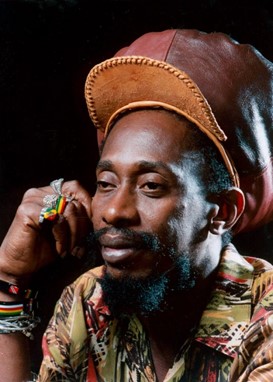
Rapso pioneer Lutalo “Brother Resistance” Masimba, born Roy Lewis, seemed to be one of those proverbial prophets, never appreciated in his own land as much as he was appreciated outside Trinidad and Tobago. His rapso music, a soulful, rhythmic blend of African drumming, Trinidadian pan and chantwell-inspired vocals, inspired a distinct musical voice that embraced Trinidad creole as our defining language.
Born in 1954, Roy Lewis took the name of Resistance when he performed as a DJ at Queen’s Royal College (QRC) events. As he became even more culturally conscious, he became known as Brother Resistance and also took the African name of Lutalo Makossa Masimba.
Proud of his roots in the East Dry River, which he called “the cultural heartbeat of Trinidad and Tobago and the Caribbean,” Brother Resistance often told the story of the role music played in his life. Music was in the atmosphere. Orisha yards, steelbands like Desperadoes, Renegades and City Syncopators was a part of his vibe. He grew up playing basketball on the street during the day and came out at the night for the music.
Resistance had a bachelor’s degree from UWI in History and Economics and a Master’s degree in Cultural Studies. He was working on a PhD. Still, he preferred a down-to-earth persona to an academic image. Some of his most famous songs – Dancin Shoes, Rapso and Ring de Bell – evoked cultural awareness and preached the message of supporting local culture, while Mother Earth created environmental awareness, decades before these two issues became popular causes.
Brother Resistance, was a pioneering force for rapso music, but he always credited Lancelot Layne as the father of rapso. He viewed rapso as a music that got to the heart of calypso. His rapso straddled poetry and song, reaching back culturally to the African griot storyteller and the Trinidad chantuelle. It was a rootsy music meant to spark pride in cultural awareness.
The Network Riddim Band released its first album, “Roots of de Rapso Rhythm”, in 1984. Then came “Rapso Explosion” in 1985 and “Rapso Takeover” in 1986. In 1991 the band released “Touch De Earth”, with Rapso followed the next year by “Heart of the Rapso Nation”. Rituals Records released “De Power of Resistance” in 1996. Two albums were released in 2001, “Let Us Rejoice” and “When De Riddum Explode”.
Trinidad and Tobago has lost an artisan of the culture and would be missed dearly, particularly for his “intellectual and sound advice he was always prepared to give as a culturist.”
Bibliography
Brother Resistance. (2021).
Dixon, B. (2021, July 14). Artistes pay tribute to Rapso legend, cultural champion Brother Resistance. Trinidad and Tobago Guardian Newspaper.
Jacob, D. (2021, July 18). Brother Resistance’s lifelong message: Stand firm for your culture. Trinidad and Tobago Sunday Newspaper.
Song of the Day: October 21, 2021
Kurt Allen: When will it end?
https://www.youtube.com/watch?v=4aXuBP13dQM
Kurt Allen
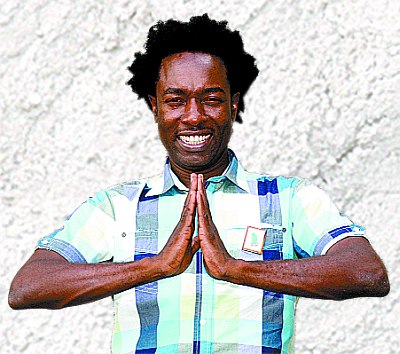
Kurt Allen a.k.a. “The Last Bardjohn of Calypso” was born in the village of Maracas, St Joseph. Kurt has embraced "Griotism" - the research, study, and practice of the Griot Tradition.
Kurt's music is a conversation raising global consciousness on life issues ranging from social awareness, politics, and religion; to gender equality, human and children rights, youth leadership, as well as the lighter "Carnival" “feel good” issues that the “Soca” brand of Calypso reflect.
Allen's first calypso composition was in 1982 while he was a student at Curepe Junior Secondary School. He began singing calypso professionally in 1983 and made the 1992 semifinals in the National Calypso Monarch Competition with "Sub-consciously." He went on to make the finals in 1994, 1995, 1997, 2008, 2011, 2012 and 2018 and won the 2010 Calypso Monarch title with "Too Bright." Shortly after winning the 2010 title, he opened The Office of The Calypso Monarch in Barataria which is dedicated to keeping the memory and the work of past Calypso Monarch winners alive.
Kurt Allen placed 2nd in the Calypso Monarch competition three times: 2012, with "Long Live Calypso" and "When Will It End"; 2013, with "Political Sin-Phony" and "Black Stalin Say," and 2014, with "Sweet Sizzling Summer" and "The Lost Psalm Of King David." Considered to have given voice to a specific political and cultural nexus of Trinidad and Tobago, Kurt’s best-known Calypso hits to date include "Too Bright, Selfie TT, Sweet Sizzling Summer, When Will It End, Long Live Calypso, Political Sin-Phony, Black Stalin Say, Stampede and Sexy Body, ". He was the lead vocalist for the local village Top 40 cover band Afsak (1988-90) and top Soca bands Atlantik (1992-93 & 2000-2001) and Roy Cape All Stars (1990-92 & 1996-2000).
Kurt has directly been schooled in the traditions of Calypso by Lord Kitchener, Mighty Sparrow, Black Stalin, Mighty Terror, Lord Pretender, Super Blue, Gypsy, Mighty Shadow, Mighty Cro Cro, Mighty Chalkdust and David Rudder. He sees himself as a vanguard for Calypso, working single handedly, if/ when necessary, to preserve the legacy, integrity and historical value of the art form. He is also a champion activist for the Global Creative Economy and has been working to foster heritage preservation and cultural/economic cooperation of the West Indies islands.
Evidence of Mr. Allen’s dedication to uniting the Caribbean through the Creative Industry is noted when in 2001 he decided to take a temporary sabbatical from the stage in order to use his experience and knowledge in culture to inspire, educate, promote and encourage the involvement of the Caribbean’s youth in the creative and cultural industries. This birthed the Non-Governmental Organization Caribbean Vizion that advocates for cultural and economic cooperation between Caribbean people and their governments. The organization is also recognized and endorsed by the CARICOM Secretariat and has worked extensively throughout the region with various governments and International Development Agencies.
Kurt Allen’s mission via his music is to liberate minds and cause humanity to take personal responsibility for their life and circumstances.
Bibliography
Emrit, R. C. Kurt Allen. Retrieved from http://www.bestoftrinidad.com/calypso/kurtallen.html
Kurt Allen. (2016).
TUCO Trinidad & Tobago (2016, November 1). Calypso History, Kurt Allen, Retrieved from https://www.facebook.com/129241537281739/posts/calypso-historykurt-allena-calypso-griot-from-trinidad-and-tobago-kurt-allen-aka/549105101962045/
Song of the Day: October 21, 2021
Karene Asche: Every knee shall bow
https://www.youtube.com/watch?v=R3UXY1LxK_w
Karene Asche

Karene Asche is the true definition of a Calypso Queen. With her commanding stage persona, powerful vocals, thought-provoking and insightful calypsos; these are just a few of her attributes that have earned her countless titles not only in Trinidad & Tobago, but throughout the Caribbean as well.
Born and bred in the culturally rich city on the hill, ‘Laventille’ in Trinidad & Tobago, Asche was discovered by former Young Kings Monarch, Sheldon Reid. Asche began singing professionally at the age of 11 and won the local television-based competition, "Twelve & Under." Her noteworthy accomplishments and accolades include securing the titles of Junior Calypso Monarch, NWAC National Calypso Queen, and being selected the winner in the Political Category of one of TUCO's competitions.
Asche is also a two-time Social Commentary Monarch winner and a three-time winner of the Sunshine Snacks Junior Calypso Monarch. She finished the Calypso Monarch competition four times in the top three: 2008 - 3rd Place with "The Recipe"; 2012 - 3rd Place with "Against All Odds" and "You Will Win The Battle But"; 2015 - 3rd with "Bridge The Gap," and "Every Knee Shall Bow"; and 2017 - 2nd Place with "Caught in the Whirlwind." She also made the Calypso Monarch Finals in 2013, 2016, and 2018.
Today, her versatility in the Calypso Fraternity knows no bounds. She has touched on many different topics from political to social issues and commentary with her own unique style and delivery. But, as most will agree, she always seems to hit home when it comes to her motivational calypso pieces that captivates calypso lovers everywhere.
In 2011, she became one of the youngest millionaires in Trinidad and Tobago after winning the first prize of two million dollars and joining the short list of females have won the National Calypso Monarch title. This list includes Calypso Rose in 1978, Singing Sandra (her friend and mentor) in 1999 and 2003, Denyse Plummer in 2001 and recently Terri Lyons in 2020. Asche also took the second place title, in National Calypso Monarch Competition singing her contributions ‘Voter’s Prayer’ and ‘Winner’s Never Quit’.
Bibliography
Cyrus, N. Karene Asche: Winners Never Quit. Caribbean Entertainment Hub.
Karene Ashe. (2019).
Karen Asche of Trinidad Reclaims Regional Female Calypso Queen Crown. (2020, January) Discover Montserrat.
Song of the Day: October 22, 2021
Roderick ‘Chucky’ Gordon: I believe
https://www.youtube.com/watch?v=7BeJ3Zyh5zs
Chucky Gordon

Born Roderick Gordon, Chucky, qualified for the Calypso Monarch Finals in 2010 and 2013 and eventually won the title in 2014 with "Wey Yuh Think" and "Wedding of The Century." He won the Calypso Monarch title again in 2015 with "The Rose" and "I Believe," and placed 3rd in 2016 with "Fixing Time" and "It Eh Go Wuk."
Singing consistently for the past eight (8) years, Chucky participated in a number of junior calypso competitions, including the National Calypso Monarch and NACC Pathfinders competition while at secondary school concluding his A’ Level study. In 2004, he placed 4th in the National Junior Calypso Monarch, won the pathfinders competition and a number of other smaller competitions. Also in that year Chucky took part in the schools parang festival, where he won the Best male vocalist title.
In 2005 he entered the senior calypso realm, where he succeeded in qualifying for the Semi-finals of the National Calypso Monarch. In this same year he was a Young King finalist, won the Tunapuna and Laventille calypso monarchs, placed 4th in the Stars of Tomorrow competition, and was a member of the Kaiso Karavan calypso tent. Heavily involved in culture, Chucky took park in The Prime Minister’s Best Village Competition 2005 with the Barataria Community Council, where he won the best male vocalist title and the best all-round performer award in the folk theater category.
His involvement in this competition continued when he joined the cast for the Malick Folk performing company in 2006 in the production entitled ‘The Journey’. It is there he blossomed into an all round performer where he won the best-all round performer for the second consecutive year.
The calypso fraternity was also forced to take special notice of Chucky in 2006. He proved that he was here to stay making history by becoming the second youngest person, at the age of 19, to become a National Calypso Monarch finalist. He also placed 5th in the Young Kings competition, 4th in the Stars of Tomorrow competition, and won the Tunapuna Monarch for a second consecutive time.
Chucky also made his first ever venture into the soca arena with his debut hit “See You,” which allowed him to place 3rd in the International Groovy Monarch competition and gave him the opportunity to perform in a number of parties and fetes. As a result of such an outstanding season, Chucky was nominated as a best new male artist at the International Soca Awards in New York. The young calypsonian who has successfully bridged Soca and Calypso, captured the 1st runner up position in the 2007 International Groovy Soca Monarch competition, inadvertently becoming the 2007 T&T Groovy Soca Monarch with his hit song ‘Turn Around’.
Chucky also accompanied the Carifesta contingent in 2008 to Guyana as one of the lead characters (Bembeh) in the play Ogun Ayan. For Carifesta Chucky also represented his country as a solo artist by performing on various stages in Guyana. Once again showing what a versatile artist and entertainer he is, Chucky fully embraced the Pan Soca/Calypso arena with the hit “Thunder Coming”. This song dominated the Panorama and was voted as the Pan Song of the year 2008.
Chucky continues to be heavily involved in all areas and levels of T&T culture with high quality contributions across the board. It is no wonder then that Chucky is being touted as a future stalwart and icon in this nation’s culture.
Bibliography
Roderick Gordon. (2015).
Emrit, R. C. (February 2015). “Chucky”, Roderick Gordon Biography. Retrieved from http://www.bestoftrinidad.com/calypso/chucky.html and https://buzz.tt/performer/chucky-gordon-78
Song of the Day: October 25, 2021
Scrunter
https://www.youtube.com/watch?v=A6BNMxKtUWE
Scrunter
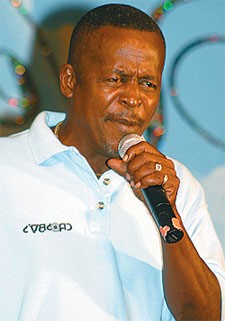
Scrunter (given name Irwin Reyes Johnson), is a musical artiste who holds the title of Calypso Crown champion (1982). He also holds the prestigious National Hummingbird Gold Medal of Trinidad and Tobago (2016). He has, over the years, penetrated the Soca-Parang market in such a way that he’s now recognized as the Parang-Soca King (a fusion of the Spanish-derived music played during Trinidad’s Christmas season and fast-paced modern calypso). And if that was not enough, his annual wild meat gathering in his home town of Sangre Grande is usually the signal to many that the holiday season has started.
Scrunter, (a sobriquet which deserves a whole song of explanation but which essentially means "someone who is hard up and hustling to make ends meet") is a multi-talented, living legend. Scrunter’s musical career got national attention in 1980 when he sang the popular song, ‘Woman on the Bass’ which easily became a favorite for steelpan competitions throughout the island. However, it was his 1982 offerings of “Lick-e-Thing” and “The Will,” that earned him the Calypso Crown title in 1982. After an extensive career creating calypso and soca music, he then carved a niche within the soca parang genre where he easily dominated with songs like Madame Jeffery, Leroy, Piece of Pork and De Parang Now Start to name but a few.
His music easily stands out above the rest for its complex composition and double-entendre that has listeners dancing, laughing and singing along all at the same time. His charismatic performances and attention to musical detail tie the package together. Scrunter continues to leave an indelible mark on the Caribbean musical landscape and has easily earned his title as cultural ambassador and musical icon for the Caribbean.
Bibliography
Scrunter On Why He Sings Soca Parang In Every Party
TJJ Office Manager. (2010, October 26). Scrunter-Serenades-Again. Retrieved from http://www.trinijunglejuice.com/tjjnews/articles/1817/1/Scrunter-Serenades-Again/Page1.html
TUCO Trinidad & Tobago (2016, October 21) Calypso History, Scrunter. https://www.facebook.com/login/?next=https%3A%2F%2F. Retrieved from www.facebook.com%2F129241537281739%2Fposts%2Fcalypso-historyscrunterreal-name-irwin-reyes-johnsonplace-of-birth-trinidadcaree%2F544347322437823%2F. Retrieved from https://www.facebook.com/TUCO-Trinidad-Tobago-129241537281739/?hc_ref=ARTstwE-jc8zLkThBy4fJAIIq-IO5MQrsy1_cpdkY7a3NUD8CI9X51D1riwoRN38nC8&fref=nf&__tn__=kC-R
Song of the Day: October 26, 2021
Rikki Jai: Sumintra
https://www.youtube.com/watch?v=_uC-i9cINyw
Rikki Jai
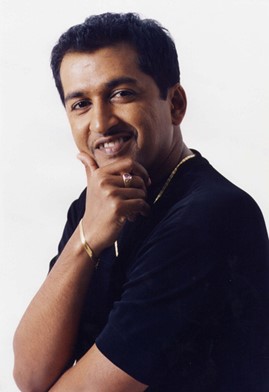
Rikki Jai, born Samraj Jaimungal, started singing in 1986 with an Indian Orchestra called Naya Andaz. In 1989 he joined another Indian Orchestra named Triveni and was a member of that band for two years where he did cover versions of Bollywood songs, Chutney, Calypso and Reggae.
In 1989 Rikki recorded his first calypso single “Sumintra” and has been recording songs every year since to coincide with Carnival. Jai's 1988 debut single Sumintra told the tale of an Indo-Trinidadian woman from Debe who informed her boyfriend of her preference for soca over the music of Indian artist Lata Mangeshkar.
Jai returned the following year with Pumping, then Bolo and Show Me Yuh Motion. His 1993 song Wine on a Bumsee signalled Jai's exit from the soca world, opting for the chutney soca arena, in which he continues to perform. Jai released Chutney Vibrations, a compilation with soca chutney rhythms and his re-reading of the Juma. His most commercially successful release is Mor Tor featuring fellow Trinidadian soca star Machel Montano. In 2007 he released songs such as Aj Bhi Jeen and Bodi ke Dal, followed by Barman. Jai has won Chutney Soca Monarch a record-breaking six times. In 2011, he won his 6th title with the song White Oak and Water. Jai was also crowned for the 7th time when he teamed up with Ravi B. In 2001, he tied for first place (with Bunji Garlin) for the "Young King" title and placed second in 2010's "Chutney Soca Monarch".
He was crowned champion at the 2011 Chutney Soca Monarch and walked away with TT$2 million in prize money.
Over the last sixteen (16) years he has been touring in many parts of the USA, Canada, Europe, China and the Caribbean. In 1997 Rikki was privileged to travel to India as part of a Cultural Delegation of the Government of Trinidad and Tobago for India’s Independence Celebrations. Then for the second time in 2004 he was invited to tour India to specifically perform at the Pravasi Bharatiya Conference in Delhi in recognition for his work in the field of Indian music outside of India. He then toured other cities over a three (3) week period.
In 2006 Rikki Jai accompanied The Trinidad and Tobago Football team “The Soca Warriors” to Germany to be part of the cultural troupe for the football World Cup games.
Bibliography
D'Songstar, S. (n.d.). Rikki Jai Biography. Retrieved from https://chutneymusic.com/rikki-jai/
https://en.wikipedia.org/wiki/Rikki_JaiSamraj Jaimungal. (2021).
https://www.chutneymusic.com/who-is-sangeeta-ramlal-harrypersad-d-songstar/
Song of the Day: October 27, 2021
Bunji Garlin: Differentology
https://www.youtube.com/watch?v=0FWHavH6IQw
Bunji Garlin

One of the leading artists in the ragga soca movement, Trinidadian soca superstar Bunji Garlin is also one of the genre's few crossover artists, having made an impact internationally with Major Lazer, the Soul Train Awards, and even the television show Grey’s Anatomy
Born Ian Anthony Alvarez in Sangre Grande, Trinidad, he got his stage name from the bungee cord (which is flexible) and Garlin (a type of gun). He kicked off his career just as a dancehall-influenced strain of soca music was taking hold. Known as ragga soca, the aggressive digital genre fueled Garlin's 2000 debut, The Chronicles, a thoroughly modern album which also featured soca legend Alison Hinds.
The singer would win Trinidad's Ragga Soca Monarch competition that same year, as well as the next, while 2002 saw him win the International Soca Monarch award and release his first album for the VP label, Revelation.
In 2006 he made news with his marriage to fellow soca artist Fay-Ann Lyons, while 2007 saw him kick off his international push with the aptly titled Global, an album that featured guest shots from reggae artists T.O.K. and Freddie McGregor.
Bunji avoided releasing another album for years, but many of his singles turned into massive, influential hits, especially the 2013 release "Differentology." The anthem was picked up by Major Lazer for a remix, was featured on an episode of the hit TV drama Grey’s Anatomy, and landed Bunji a nomination for Best International Performance at the 2013 Soul Train Awards.
In 2014, he landed a deal with RCA and released the album “Differentology” on the major label that same year. In the years that followed, Garlin continued to break boundaries through his collaborations with various artists, including Elliphant ("All or Nothing"), Jack U ("Jungle Bae"), Machel Montano ("Buss Head"), and Sebastian Ingrosso ("Ride It").
Bibliography
Alchetron. (n.d.). (2018, May 04). Bunji Garlin Biography. Retrieved from https://alchetron.com/Bunji-Garlin
Ian Antonio Alvarez, Bunji Garlin. (2018).
Jeffries, D. (n.d.). Bunji Garlin Biography. Retrieved from https://www.allmusic.com/artist/bunji-garlin-mn0000940887/biography
Song of the Day: October 28, 2021
Kes: IzWE
https://www.youtube.com/watch?v=Az7ay17ttQk
Kees Dieffenthaller
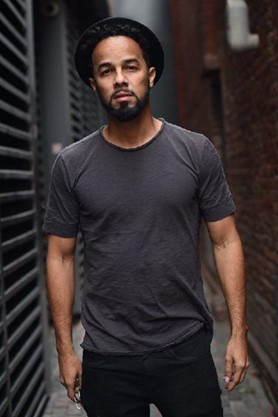
Born to Deanna, a classical singer, and George “Bunny” Dieffenthaller, a true lover of the mas, Kees grew up surrounded by music and an appreciation of culture. It was from his father, that he learned about Carnival. From his mother he learned the technical aspects of singing as she is a classically trained opera singer. It’s Dieffenthaller’s versatility that makes him stand out as a performer. He has the appeal to go beyond the West Indian diaspora with an impressive vocal ability, and can switch seamlessly between genres, encouraging his listeners to act “Wotless” one minute and charming them with R&B-flavoured songs such as “Take Me Away” the next.
His parents harboured dreams of moulding their four children into a Caribbean version of the Von Trapp family (his parents had them watch “Sound of Music” every Christmas). His parents originally from Austria, via Holland relocated to Trinidad and Tobago. Born in San Fernando, he attended Cedar Grove Primary School, then Presentation College, San Fernando and St Mary’s College, Port-of-Spain. Performing since the age of five, getting into entertainment was a gradual journey. He and his brothers formed a garage band with equipment fashioned out of milk tins and buckets. When their father recognised their enthusiasm, he bought them a drum kit and built a stage.
At primary and secondary schools, Dieffenthaller sang in the choirs. In his teenage years he formed an R&B group called Klas, with former Miss T&T/Universe Faye Alibocas and schoolmates Michael Zephyrine, now a trained classical singer, and Marc Alexander. They performed at various events throughout Trinidad’s second city, San Fernando, where he lived. The money he earned helped to pay for schoolbooks and other necessities at a time when his family was going through financial difficulties.
When the family relocated to Port of Spain, Dieffenthaller and his brothers revived the family band. It wasn’t until Imij and Company, a well-known soca and cover band, recognised their talent and recruited them in 2002 that the group became known in the world of soca. Even then, they flew under the radar of mass appeal with positive, uplifting tracks such as “One Day”, groovy love songs such as “Hypnotize”, with former Imij singer Michelle Xavier, and the pop-infused “Push It”.
In 2005, the Dieffenthaller brothers and best friend Riad Boochoon left to form Kes the Band. They refused to be pigeonholed, experimenting with rock riffs, reggae beats and soca in their songs. Dieffenthaller and his brothers Jon (pronounced Yon) and Hans first gained recognition as a rock/alternative band called Limestone and later Rydimorai. In 2010 Kes went to the studio with Madmen Productions and worked on an entirely different project-a pop album. That album, “Stereotype”, gave Dieffenthaller the impetus to push the envelope for his 2011 Carnival album, Wotless (recorded after Stereotype, it was released earlier). He teamed up with several singer/songwriters including Kerwin Dubois, with whom he co-wrote the songs “Wotless” and “Ah Ting”.
That breakthrough opened the door for his other experiments on the album. While Dieffenthaller believes in pleasing the fan base, he also wants to make soca global, and to provide a vehicle to make that possible. “Show Meh Where Yuh From”, on the Electro Lights riddim, is one of his hits. Produced by Madmen Productions, the song fuses soca and dance music, a trend others exploited during 2011. Montano’s “AoA” and Dieffenthaller’s “Show Meh Where Yuh From” brought the two former Presentation College students together during Carnival 2011, with Montano endorsing his younger colleague as the future of soca.
In 2011 Kees won the Groovy Soca Monarch title and a BET/Soul Train nomination for Best Caribbean Performance. He also shared the International Power Soca Monarch 2020 and Road March 2020 titles with Iwer George with Stage Gone Bad. Some of his other boundary breaking achievements include:
- 2005 - Kes the Band released five albums.
- 2006 - The band’s song “The Calling” selected as for EA Sports FIFA 2006 World Cup.
- 2007 - Kees invited to Nashville, Tennessee, to participate in a three day writing camp hosted by Desmond Child, a Grammy-award winning writer who has worked with Bon Jovi, Aerosmith and Kelly Clarkson. Child selected Kees and another participant to be his writing partners on a song that was included on the debut album release of former American Idol finalist Ace Young.
- 2009 - “Stalker” nominated for World Beat Song for the ninth Independent Music Awards (IMA).
- 2010 - The band’s pop/dance crossover song “Let Me Know” picked up by Six Flags to be played throughout
all their amusement parks in a new music segment, and by American Airlines’ in-flight programmes.
- 2010 - The band performed live on BBC World Channel.
- February 2011 - Band named the first International Artistes of the Month by USA4REAL, a community of indie musicians and music enthusiasts.
- July 2011 - First soca band to launch an app for iphone.
- September 2011 - Kes the Band performed live on Fox 5’s Good Day, New York.
- October 2011 - Band nominated for Best Caribbean Performance, BET/Soul Train Awards, for “Wotless”
Over the years Kes the band has collaborated with several artistes in various genres, one of the most recent being in February 2021 with Jazz musician Etienne Charles and the Laventille Rhythm Section, aired on American talk show, the Late Show with Stephen Colbert.
Bibliography
Dowrich-Phillips, L. (2012, January/February). Kees: bigger, better, crazier, sexier. Caribbean Beat Magazine, Issue 113.
Kees Dieffenthaller. (2019)
Khan, N. (2012, September 02). Kees Dieffenthaller - Born to Sing. Trinidad and Tobago Guardian Newspaper.
Song of the Day: October 29, 2021
Machel Montano: Too young to soca
https://www.youtube.com/watch?v=YLoUPMwPhcM
https://www.youtube.com/watch?v=gvw9vVe3q0k
Machel Montano

Born November 24, 1974 in Port of Spain Trinidad, Machel Montano was destined to be great. Through his ever-evolving musical offerings, Machel works on his mission of depositing soca into the domain of mainstream music. It is his dream to see soca being enjoyed in the international market.
Machel’s career began in 1982 at age seven and at age nine he formed his band, Pranasonic Express. Montano’s debut album “Too Young To Soca”, released in 1985, was an instant hit which earned rave reviews and standing ovations at live performances. In April of 1986, the young performer appeared on the popular television show, Star Search, bringing soca music to US national television.
The next year, Machel took 2nd place in the Trinidad & Tobago National Song Writer’s Festival with his song, “Dream Girl.” In 1987, at the age of 12, he was the winner of the Caribbean Song Festival held in Barbados. He was the first Trinidadian and youngest to ever win this prestigious contest.
One of Machel’s earliest and greatest achievements was his May, 1984 appearance at Madison Square Garden in the The Felt Forum in New York City at the age of 9. He was billed as a support act for the Mighty Sparrow and other top calypsonians. At the 7th Annual Copyright Organization of Trinidad & Tobago (COTT) Awards, Machel received the awards for Song Writer of the Year 2004/2005 and Song of the Year 2004/2005 for “Madder Than That”.
Also in 2005, he attended the 3rd Annual International Soca Awards – in Trinidad and received awards for: Male Soca Performer of the Year, Soca Song Writer of the Year, Overall Male Soca Performer of the Year, Soca Artiste Album/CD of the Year for “The Xtatik Experience”, Overall Soca Band of the Year; and Soca Video of the Year for “You”.
In 2008, Machel was awarded the Bob Marley Award Entertainer of the Year 2007, Best Calypso/Soca entertainer 2007, and named the Most Outstanding Stage Personality at the International Reggae and World Music Awards (IRAWMA) at the historic Apollo Theatre in New York. That year also found Machel receiving an award at the 1st Annual BET J Virtual Awards for Best Caribbean Artiste of the Year. Other awards were bestowed upon Machel in 2008 at the Soca News Awards in the UK.
In 2009, Machel released his album, “Heavenly Drum.” The album had a fresh sound and included songs like “Mesmerize”, “Fly Away”, “Pray” and many more. Some of the more popular songs were premiered at the Trinidad and Tobago Carnival which included the rollicking rhythms of “Push Bumpers”, “Block to Block” and “Won’t Stop was featured in the June/July issues of Vibe Magazine (page 94).
In January 2010, Machel became the first soca artiste to attain a headlining slot at the Jamaica Jazz and Blues Festival. At the 2010 Road March Competition, Machel placed 3rd with the song “No Behaviour”.
On May 2, 2010 he made history as the only two-time recipient (2008) of The Bob Marley Award for Entertainer of the Year at Martins International Reggae and World Music Awards (IRAWMA) held in Queens, New York. In May, 2010, Machel, as special guest artist for the U.S. shows, embarked on a 5-week tour with Pitbull on his Mr. Worldwide Carnival tour.
Machel returned to Trinidad and Tobago Carnival in 2011 after being absent in 2010. “The Return” concert was a return to the National Stadium to a sold out audience to witness the mother of all Machel Montano events. His return to the competition was spectacular where he emerged the Power Soca Monarch Champion 2011 and also captured the price for best presentation. The climax was his victory in the Road March. His song “Advantage” was the most played song to cross the stage on Carnival Monday and Tuesday.
On the heels of Carnival he returned to Madison Square Garden in March 2011 another sold out event. His 35th album” The Return” contains twelve (12) tracks with hits like “Bend Over, So High A.O.A, Advantage, Hard Wuk” and many more.
In May 2011, at the 30th Anniversary of IRAWMA, held in Port of Spain, Machel secured six (6) awards: Most Outstanding Stage Personality, Best Male Calypso/Soca Entertainer, Best Caribbean Entertainer, Most Outstanding Show Band, Best Soca Band and The King of Soca Award.
In October 2011, Machel was nominated in the “Best Caribbean Performance” category for the song “Bend Over” at the 2011 Soul Train Awards. Other nominees included Rihanna, Vybz Kartel, Movado and Kes.
In February 2012, Machel Montano became a Triple Crown winner. At the Super Red 20 International Soca Monarch he won the Groovy Soca Title with the Anthemic “Mr Fete”. Later that night he went on to dominate the International Power Soca Monarch with his high-energy power hit “Pump Yuh Flag”. On Carnival Monday and Tuesday 2012 “Pump Yuh Flag” was the most played song on the road (233 times) earned him Road March glory.
Carnival 2013 saw Machel Montano successfully defending his 2012 crown in the Power Soca Monarch (joint winner) and Groovy Soca Monarch. His song “FLOAT” was first runner up in the Road March. In 2013 Machel was nominated once again for a Soul Train Awards in the category of Best International Performance for his hit “The Fog”. He has also been nominated in the first round ballot of the 56th Grammy Awards in two categories. His 2013 album “Machelements” was nominated in the World Music Category for Best Album and his two videos “Possessed” and “Represent” have been nominated in short file video category.
Carnival 2014 brought Machel Montano continued success having won the coveted Power Soca Monarch title for a fourth time in a row with the hit “Ministry of Road” making him the only artiste to have ever done so. Machel also went on to place 2nd in the Groovy Soca Monarch category with “Happiest Man Alive” and further went on to take “Ministry of Road” all the way to Road March supremacy.
Machel certainly lives the theme of Breaking Boundaries. He has won the T&T Road March ten times thus far (three with collaborations), the International Soca Monarch five times in a row (one collaboration) and the International Groovy Soca Monarch two times (also winning the ISM in both years).
Bibliography
Machel Montano. (2020).
Montano, M. (n.d.). Machel Montano Biography: The Making of Monk Monte. Retrieved from https://machelmontano.com/biography/